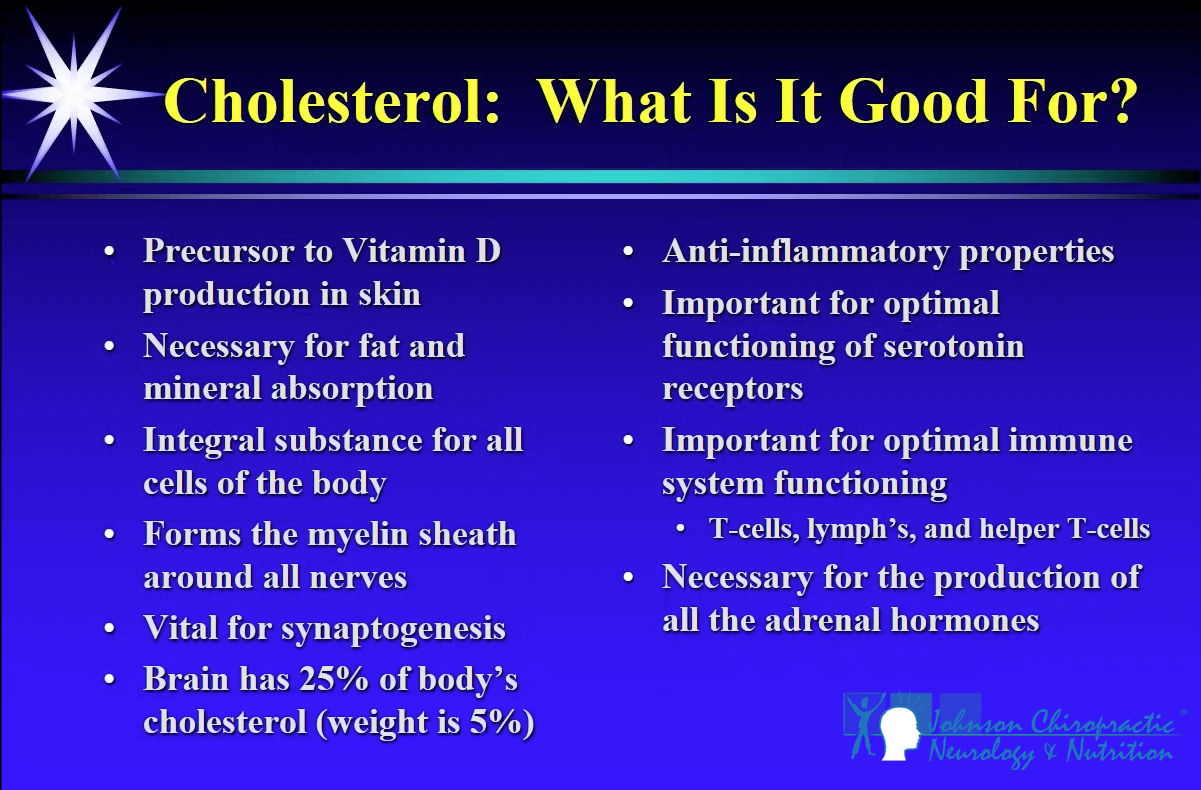 The recent headlines about coconut oil say that because it's higher in saturated fat than beef or lard, it's bad for you. “You'll drastically increase the chances of cardiovascular disease if you eat it because saturated fat raises cholesterol, which leads to heart disease and mortality.” That kind of warning comes from the American Heart Association (AHA)—a powerful organization that continues to promote the mythical direct link between saturated fat and heart disease.
The recent headlines about coconut oil say that because it's higher in saturated fat than beef or lard, it's bad for you. “You'll drastically increase the chances of cardiovascular disease if you eat it because saturated fat raises cholesterol, which leads to heart disease and mortality.” That kind of warning comes from the American Heart Association (AHA)—a powerful organization that continues to promote the mythical direct link between saturated fat and heart disease.
Good fats improve your lipid profile
We know from the research that saturated fat can in fact raise your cholesterol. However, it raises it in a good way. Evidence has shown if your LDL cholesterol contains a lot of small, dense particles and you also have high triglycerides, then you're setting the stage for heart disease. Those small, dense particles come from a diet that's high in carbs and low in fat. Reduce your carbohydrate consumption and increase the good quality fats, your cholesterol particle ratio of bad to good will almost certainly improve.
However, if your LDL cholesterol is mostly made up of large, fluffy particles and your triglycerides are low, your risk of heart disease is much lower.

Sugar is the real culprit for poor health
What makes the difference between dangerous small, dense LDL particles and safer LDL isn't the amount of saturated fat you eat. In fact, study after study shows that your fat and cholesterol intake have almost no impact on your blood cholesterol. It's the amount of sugar. The AHA estimates that the average person eats 20 teaspoons of sugar a day. Sugar raises your LDL cholesterol, lowers your HDL cholesterol, and increases your triglycerides. It has been shown to increase insulin resistance and trigger inflammation. In fact, an important study in JAMA Internal Medicine in 2014 proved conclusively that high sugar consumption is closely linked to death from heart disease—and that link is far closer than it is for cholesterol, smoking, hypertension, or any other risk factors. That is the statistic– about the dangers to your heart and your health–is where the real headline scare should be.

The quality of the oil you use in cooking is important
There's no need to avoid saturated fat as long as it comes from a healthy, plant-based source. Coconut oil is definitely preferable to cheap, highly processed vegetable oils that have had their nutrients stripped away. Coconut oil has other health benefits as well. The main fatty acid in coconut oil is lauric acid, which has well-known antibiotic, anti-microbial, and anti-viral benefits.
Coconut oil also helps stabilize blood sugar and helps soothe digestive upsets. Eating a lot of coconut oil does, indeed, raise your cholesterol levels–in a positive way by raising HDL (the good cholesterol), lowering triglycerides, and lowering the amount of small LDL particles.
So go ahead. Use coconut oil in your cooking.
If you found value in this article, please use the social sharing icons at the top of this post and please share with those you know who are still suffering with chronic health challenges, despite receiving medical management. Help me reach more people so they may regain their zest for living! Thank you!
Always remember one of my mantras., "The more you know about how your body works, the better you can take care of yourself."
For more details about the natural approach I take with my patients, take a look at the book I wrote entitled: Reclaim Your Life; Your Guide To Revealing Your Body's Life-Changing Secrets For Renewed Health. It is available in my office or at Amazon and many other book outlets.
ALL THE BEST – DR. KARL R.O.S. JOHNSON, DC – DIGGING DEEPER TO FIND SOLUTIONS
About the Author:
Dr. Silverman graduated magna cum laude from the University of Bridgeport College of Chiropractic and has a Masters of Science in human nutrition. His extensive list of educational accomplishments includes designations as a certified nutrition specialist, certified clinical nutritionist, certified sports nutritionist. Dr. Silverman is a diplomate with the American Clinical Board of Nutrition and the Chiropractic Board of Clinical Nutrition. He is an internationally-known speaker and author with a full-time private practice in White Plains, NY, where he specializes in the treatment of joint pain with innovative, science-based, nonsurgical approaches and functional nutrition. Dr. Silverman is also on the advisory board for the Functional Medicine University. He is a health contributor to Fox News Radio and has appeared on Fox & Friends, Fox News, NBC News, CBS News, NewsMax TV, WPIX, and Wall Street Journal Live. He was awarded the prestigious 2015 Sports Chiropractor of the Year by the ACA Sports Council. In 2016 he published Inside/Out Health: A Revolutionary Approach to Your Body.
Blog post compliments of Functional Medicine University



